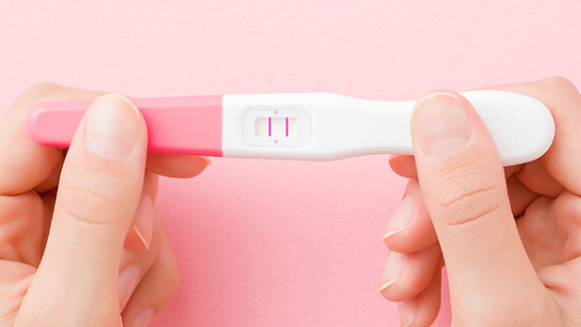Traveling during pregnancy can be a rewarding experience, but it also requires careful planning and consideration of potential risks. Whether you’re embarking on a vacation or traveling for work, it’s essential to prioritize your health and the well-being of your baby. In this comprehensive guide, we’ll explore everything you need to know about traveling during pregnancy, from the safest time to travel to specific precautions for air, car, and long-distance travel.

Safest Time to Travel:
The second trimester is generally considered the safest time to travel during pregnancy, provided there are no complications. This period, typically between weeks 14 and 28, is when many women experience increased energy levels and reduced nausea.
Consultation with Your Doctor:
Before making any travel plans, it’s crucial to consult with your doctor, especially if you have a high-risk pregnancy or any underlying medical conditions. Your doctor can provide personalized advice based on your health status and help you assess the risks associated with travel.
Avoiding Developing Nations:
Traveling to developing nations during pregnancy is not recommended due to various factors, including the risk of disease and lower standards of medical care. It’s essential to consider the availability of healthcare facilities at your destination and potential risks to you and your baby.
High-Risk Pregnancies:
Women with high-risk pregnancies, such as those with cervical problems, gestational diabetes, or a history of pre-eclampsia, should avoid traveling to minimize complications. Additionally, first-time pregnant women over the age of 35 are advised to refrain from travel.
Immunization Warnings:
Most vaccines are not recommended for pregnant women due to potential risks to the unborn baby. However, the influenza vaccine is safe and strongly recommended for pregnant women. It’s essential to discuss any travel-related immunizations with your doctor before receiving them.
Malaria Risk:
Pregnant women should avoid traveling to areas where malaria is present, as the infection poses significant risks, including miscarriage and premature labor. Some antimalarial drugs are considered safe during pregnancy, but it’s crucial to consult with your doctor before taking any medications.
Risks of Long-Distance Travel:
Long periods of immobility during car, bus, rail, or air travel increase the risk of deep vein thrombosis (DVT) in pregnant women. It’s essential to take precautions such as frequent leg exercises, staying hydrated, and wearing compression stockings to reduce the risk of DVT.
Air Travel and Pregnancy:
Before deciding to travel by plane, it’s essential to discuss any potential risks specific to your pregnancy with your doctor. Factors such as gestational diabetes or a multiple pregnancy may increase the risks associated with air travel. Additionally, pregnant women should be aware that flying during the last six weeks of pregnancy could potentially trigger premature labor.
When planning air travel, it’s advisable to check with the airline regarding their policies for pregnant passengers. Some airlines may have restrictions on flying for women who are over a certain number of weeks pregnant, while others may require a doctor’s note for clearance.
Furthermore, it’s crucial to review the fine print of your travel insurance policy, as some policies may not cover pregnancy-related complications or emergencies. Arranging for a bulkhead seat or a seat near an exit can provide extra legroom, making the journey more comfortable. Additionally, booking an aisle seat can make it easier to access the restroom during the flight.
Before departure, discuss with your doctor whether you need to travel with a medical kit and ensure it’s packed in your carry-on luggage for easy access during the flight. Your medical kit may include preparations to treat common pregnancy complaints such as heartburn, thrush, and constipation, as well as oral rehydration preparations in case of traveler’s diarrhea. It’s also advisable to carry multivitamins formulated for pregnant women and urine dipsticks to monitor glucose levels if required.
During the flight, pregnant women should wear their seatbelt under their bump and across their lap to ensure proper restraint in case of turbulence or sudden movements. Regularly stretching and moving the legs while seated can help prevent blood clots, especially on long flights. Consider wearing support stockings to improve circulation, as a pregnant woman’s circulation is already under strain, and the lower cabin pressure inside the plane can theoretically increase the risk of blood clots.
Staying hydrated is essential during air travel to reduce the risk of dehydration. Pregnant women should drink plenty of water throughout the flight and avoid excessive consumption of alcohol and caffeine, which can contribute to dehydration. If the flight is smooth, walking up and down the aisles every half hour can help improve circulation and reduce the risk of blood clots. During turbulence, it’s best to remain seated but flex and extend the ankles frequently to maintain blood flow.
If a pregnant woman experiences symptoms such as shortness of breath or light-headedness during the flight, it’s essential to notify one of the flight attendants immediately. They can provide assistance and, if necessary, administer oxygen to help alleviate symptoms.
Car Travel and Pregnancy:
Traveling by car during pregnancy requires specific precautions to ensure comfort and safety for both the mother and the baby. Making frequent breaks to stretch the legs and visit the restroom is essential to prevent discomfort and reduce the risk of blood clots.
When traveling by car, pregnant women should always wear a seatbelt to protect themselves and the baby in case of a collision. The lap sash should be fastened across the lap and under the bump, while the shoulder sash should be positioned above the bump and between the breasts. Avoiding wearing the lap sash directly across the bump is crucial, as a sudden jolt could potentially cause the placenta to separate from the uterus, resulting in serious complications.
If sitting in the front passenger seat, it’s advisable to move the seat well back from the dashboard to reduce the impact of airbags in the event of a collision. Similarly, if driving, adjust the seat to ensure it’s as far back from the steering wheel as possible while still allowing for safe and comfortable driving. Tilting the steering wheel downwards, away from the belly, can further minimize the risk of injury in case of a collision.
In the unfortunate event of a collision, even a minor one, it’s essential for pregnant women to see their doctor as soon as possible. Symptoms such as contractions, pain, or bleeding after an accident should not be ignored and warrant immediate medical attention. It’s also important to inform the doctor if you have a rhesus negative blood group, as you may require an anti-D injection to prevent complications.
Considering joining a roadside assistance program can provide peace of mind during car travel, as it ensures prompt assistance in case of a breakdown or emergency. Additionally, always carry a mobile phone with you to call for help if needed.
Heat and Sun Exposure:
Traveling in hot weather poses additional challenges for pregnant women, as overheating and dehydration can have adverse effects on maternal and fetal health. To stay safe and comfortable in hot weather, it’s essential to take precautions such as carrying a water bottle and drinking water frequently to stay hydrated. It’s advisable to seek shade or stay indoors during the hottest part of the day to avoid excessive sun exposure.
Protecting the skin from harmful UV rays is crucial during pregnancy, so wearing loose-fitting clothing, a hat, and sunscreen with a high SPF can help prevent sunburn and skin damage. Avoid rushing or overexertion in hot weather, as it can lead to dehydration and exhaustion. Planning activities and allowing plenty of time for rest breaks can help prevent overheating and ensure a more enjoyable travel experience.
If a pregnant woman experiences symptoms of overheating, such as weakness, dizziness, or nausea, it’s essential to take immediate steps to cool down and rehydrate. Seeking shade or going indoors, drinking a glass of cool water, and lying down can help lower body temperature. Using a fan, applying a cool, wet cloth to the forehead and neck, or running cool water over the wrists can further aid in cooling the body down. Additionally, consuming a light snack such as a banana or a piece of toast can help replenish fluids and stabilize blood sugar levels.

Sporting Activities and Pregnancy:
While regular exercise is beneficial traveling during pregnancy, certain sporting activities carry an increased risk of injury to the unborn baby and should be avoided. Water-skiing, for example, poses a risk of forcing water into the vagina if the skier falls off the skis, potentially leading to complications. Similarly, scuba diving can expose the baby to changes in blood gases, increasing the risk of harm.
Saunas and hot tubs should also be avoided during pregnancy, as raising the body temperature can pose risks to the baby. Horseback riding carries a risk of placental abruption, where the placenta separates from the uterus, leading to potentially serious complications. Falling from or being kicked by a horse can result in trauma to the baby or even death.
High-altitude activities such as mountain climbing should be approached with caution during pregnancy, as reduced oxygen levels at higher elevations can affect maternal and fetal health. Pregnant women are more vulnerable to developing altitude sickness, which can have serious consequences if left untreated.
Before engaging in any sporting activity during pregnancy, it’s essential to consult with your doctor to assess the risks and determine whether it’s safe for you and your baby. Snorkeling is generally considered safe during pregnancy, while scuba diving to depths of less than 18 meters (60 feet) may be reasonably safe but should be discussed with your doctor first.
Traveller’s Diarrhoea and Pregnancy:
Food and water safety are paramount during pregnancy to prevent infections and food poisoning, which can harm the baby or trigger miscarriage. Pregnant women should take precautions to avoid contaminated food and water, especially when traveling to developing nations.
Avoiding food buffets, seafood, undercooked meats, soft cheeses, and pâtés can reduce the risk of foodborne illnesses. It’s essential to wash hands thoroughly after using the toilet, before preparing food, and before eating to prevent the spread of germs and bacteria.
In developing nations, it’s advisable to only consume fruit that has been peeled yourself and to avoid leafy greens and salads, as they may have been washed in contaminated water. Drinking bottled water is recommended if the safety of the water supply is uncertain, and bottled water should also be used when brushing teeth. Additionally, ensure that all eating utensils are thoroughly dried after washing to prevent contamination.
Avoiding ice and treating unsafe water with iodine should be practiced to reduce the risk of infections and adverse effects on the baby. Long-term consumption of iodine-treated water can lead to the development of a goiter, or enlarged thyroid gland, in the unborn baby.
Read more about Diabetes During Pregnancy
Medications to Avoid Traveling During Pregnancy:
Pregnant women should be cautious about taking medications of any kind, as some drugs can pass through the placenta and cause birth defects or miscarriage. It’s essential to avoid taking over-the-counter medications unless advised by a doctor who knows you are pregnant.
Medications commonly used to treat traveler’s diarrhea, such as antibiotics, may be dangerous during pregnancy and should be avoided unless prescribed by a doctor. Additionally, alcohol and recreational drugs should be avoided during pregnancy to protect the health and development of the baby.
Conclusion:
Traveling during pregnancy requires careful planning, consideration of potential risks, and adherence to safety guidelines to ensure the well-being of both the mother and the baby. By consulting with a doctor before travel, taking necessary precautions, and listening to your body’s signals, pregnant women can enjoy a safe and comfortable travel experience. Prioritizing hydration, food safety, and avoiding risky activities can help minimize the risk of complications and ensure a memorable journey during this special time.






